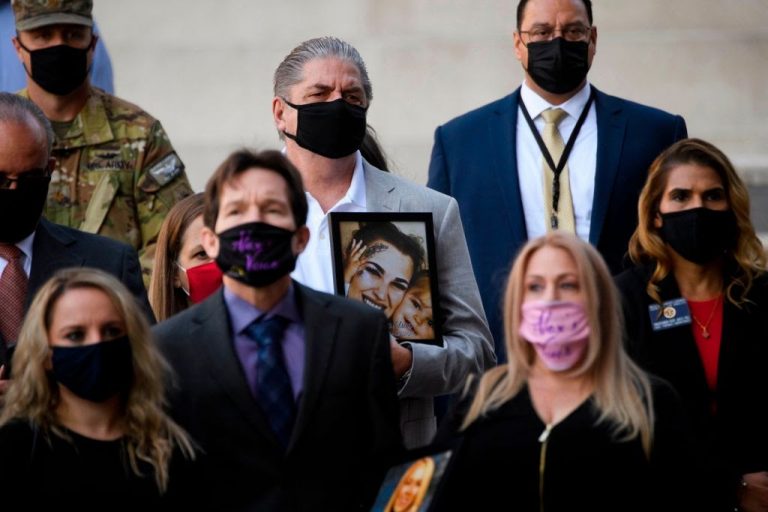U.S. drug overdose deaths took a dramatic turn for the worse in 2020 according to new data released by the Centers for Disease Control on July 14.
The CDC showed 71,130 people had been reported to have died from drug overdoses as of December 2019, a number that ballooned more than 29 percent to 92,183 by the end of last year.
By comparison, statistics for December of 2018 to December of 2019 show an increase of reported deaths from 67,850 to 71,130.
However, the CDC does not report its data in absolute numbers. According to the Technical Data portion of the visualization, figures are “based on death records received and processed by the National Center for Health Statistics (NCHS) as of a specified cutoff date. The cutoff date is generally the first Sunday of each month. National provisional estimates include deaths occurring within the 50 states and the District of Columbia.”
It also notes its data presented are based on what it calls “12-month ending periods,” explaining the periods are “Defined as the number of deaths occurring in the 12-month period ending in the month indicated. For example, the 12-month ending period in June 2017 would include deaths occurring from July 1, 2016, through June 30, 2017. The 12-month ending period counts include all seasons of the year and are insensitive to reporting variations by seasonality.
‘Chilling’ data
Success
You are now signed up for our newsletter
Success
Check your email to complete sign up
Politico reported the CDC confirmed the numbers were the greatest increase seen in 50 years. Obama-era drug czar Michael Botticelli told the outlet the increase is an “astounding number,” adding that “it takes my breath away, honestly.”
NIH Director at the Institute of Drug Abuse, Nora Volkow, called the data “chilling,” in a statement according to CNN, adding that in her opinion, “The COVID-19 pandemic created a devastating collision of health crises in America.”
“This has been an incredibly uncertain and stressful time for many people and we are seeing an increase in drug consumption, difficulty in accessing life-saving treatments for substance use disorders, and a tragic rise in overdose deaths,” said Volkow.
CNN also said the NCHS said major narcotic classes such as fentanyl, methamphetamine, cocaine, and prescription medications all showed increased attributable overdose deaths.
Bob Anderson, Chief of the Mortality Statistics Branch at the NCHS told Reuters, “We do know the primary driver of the increase (in deaths) involves synthetic opioids, primarily fentanyl.”
Dr. Joshua Sharfstein, a policy expert at the John Hopkins Bloomberg School of Public Health, also told Reuters social distancing and lockdown measures enacted during the pandemic made community outreach and addiction counselling and support programs unable to operate, contributing to the factor.
Sharfstein also estimated that currently, more people are dying from drug overdoses than from COVID-19, calling it “a different kind of crisis, and it’s not going to go away as quickly.”
Lockdown despair
In May, The Epoch Times interviewed a Florida mother, Michelle Holbrook, whose 28-year-old son Chandler died of an accidental overdose. The heroin he had purchased was laced with fentanyl.
Hollbrook said Chandler first became addicted after being prescribed oxycontin during recovery from shoulder surgery in his teenage years.
Although Chandler’s oxy habit quickly evolved into a heroin habit, Holbrook said her son had gotten clean and found a stable job as a bartender in a restaurant, turning his life around in 2020 after a successful stay at a rehab facility.
“Before the pandemic, he was going to work every day, he was learning to bartend at the restaurant he worked at—they loved him up there,” said Holbrook.
However, Chandler went off the rails when the pandemic hit and his place of employment was forced to close. Michelle felt the loss of daily routine and structure, in addition to isolation from living alone in his apartment, are what led her son back to the path of drug abuse.
“People that don’t understand this disease feel you can just walk away from it at the drop of a hat. And I know you cannot,” Holbrook said in regard to addiction. “I saw it firsthand with Chandler. He didn’t like it, it wasn’t something he enjoyed.”







